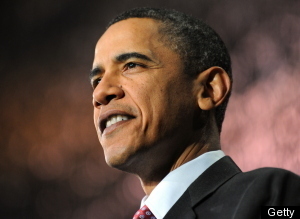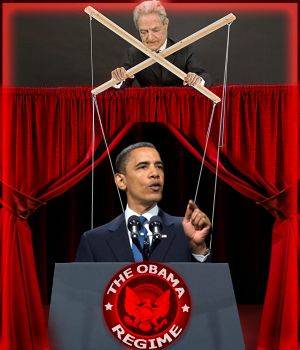KissMy said:
September 1999 - New York Times
Fannie Mae, the nation's biggest underwriter of home mortgages, does not lend money directly to consumers. Instead, it purchases loans that banks make on what is called the secondary market. By expanding the type of loans that it will buy, Fannie Mae is hoping to spur banks to make more loans to people with less-than-stellar credit ratings.
Fannie Mae officials stress that the new mortgages will be extended to all potential borrowers who can qualify for a mortgage. But they add that the move is intended in part to increase the number of minority and low income home owners who tend to have worse credit ratings than non-Hispanic whites.
Yep. And ol' George Bush went even further, which opened the door wide for all those independent mortgage companies, like Countrywide, to profit off the backs of people who in a real world would not even be considered for a home mortgage
at all. There were so many of these bogus mortgagors, as a result of the new Bush policy, they were like carnival barkers wooing people off the streets, knowing full well those mortgages would soon get lost in the Wall Street securities bundling debacle:
1/20/2004
Bush seeks to increase minority homeownership
By Thomas A. Fogarty, USA TODAY
USATODAY.com - Bush seeks to increase minority homeownership
In a bid to boost minority homeownership, President Bush will ask Congress for authority to eliminate the down-payment requirement for Federal Housing Administration loans.
In announcing the plan Monday at a home builders show in Las Vegas, Federal Housing Commissioner John Weicher called the proposal the "most significant FHA initiative in more than a decade." It would lead to 150,000 first-time owners annually, he said.
Nothing-down options are available on the private mortgage market, but, in general, they require the borrower to have pristine credit.
Bush's proposed change would extend the nothing-down option to borrowers with blemished credit.
The FHA isn't a direct lender, but guarantees loan payments for mortgages on moderately priced owner-occupied property. The FHA guarantee now permits private lenders to finance as much as 97% of the purchase price of a home for millions of low- and middle-income borrowers.
In the proposal soon to be delivered to Congress, Bush would allow the FHA to guarantee loans for the full purchase price of the home, plus down-payment costs. As a practical matter, the FHA would guarantee mortgages as high as 103% of the value of the underlying property.
Weicher says the change is aimed at potential home buyers whose credit excludes them from the private mortgage market. Borrowers would need sufficient income to meet monthly payments. But, he said, the plan would eliminate the single largest impediment to homeownership for millions of households — lack of money for a down payment.
The most recent government figures show a national home ownership rate of 68.4%, the highest ever. But less than half of black and Latino householders own the home in which they live. Bush has a goal of 5.5 million new minority homeowners this decade.
FHA loans carry higher risks of delinquency and foreclosure than do private mortgages, and the proposed change presumably will lead to greater losses to the government than the current program does.
Weicher said the added risk will be offset by higher fees charged to borrowers who opt to make no down payment.
On a $100,000 mortgage with an interest rate of about 6%, the nothing-down borrower could expect closing costs $750 higher than other FHA customers. Monthly house payments would be slightly higher.
Mortgage analyst Keith Gumbinger of financial publishers HSH Associates says the Bush plan "would fill at least a small niche in the mortgage market" — first-time buyers with somewhat impaired credit.
Affordable-housing advocate Scott Syphax, CEO of Nehemiah Corp., called the proposal "revolutionary." It marks the clearest official acknowledgment that millions of potential homeowners are being blocked by high down-payment costs, he says.


 This is the best solution I have seen yet. Thanks for this Kiss
This is the best solution I have seen yet. Thanks for this Kiss